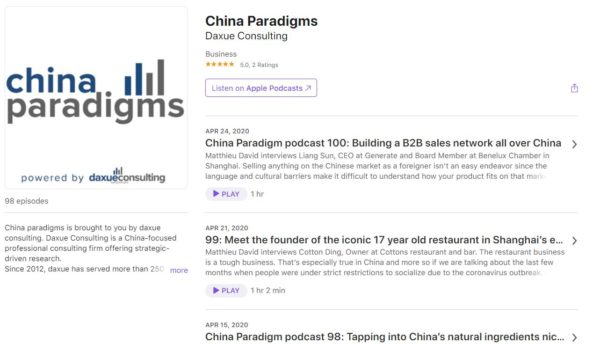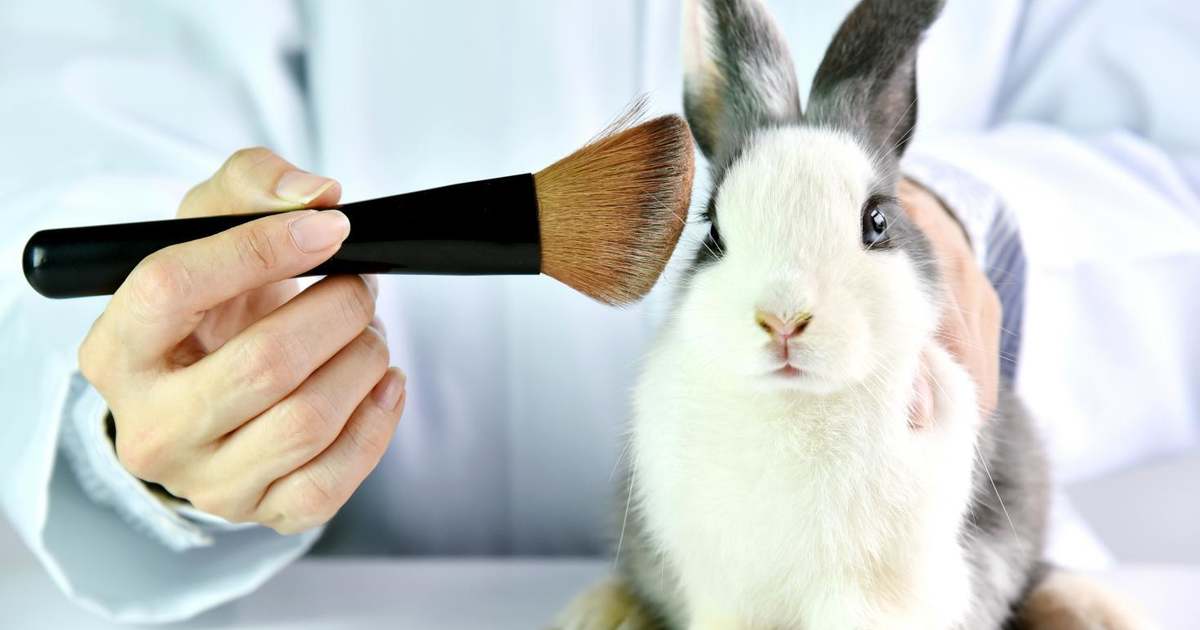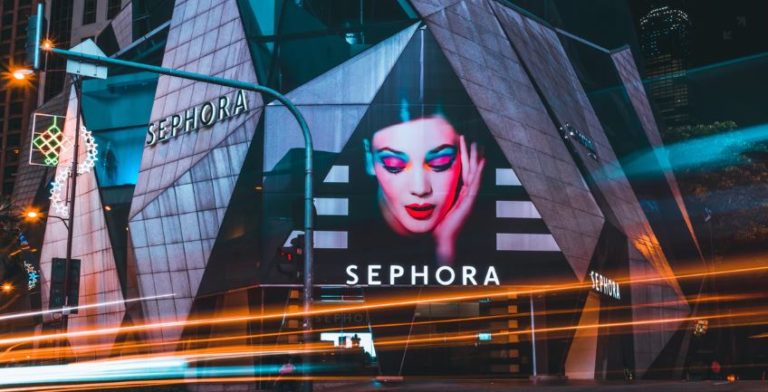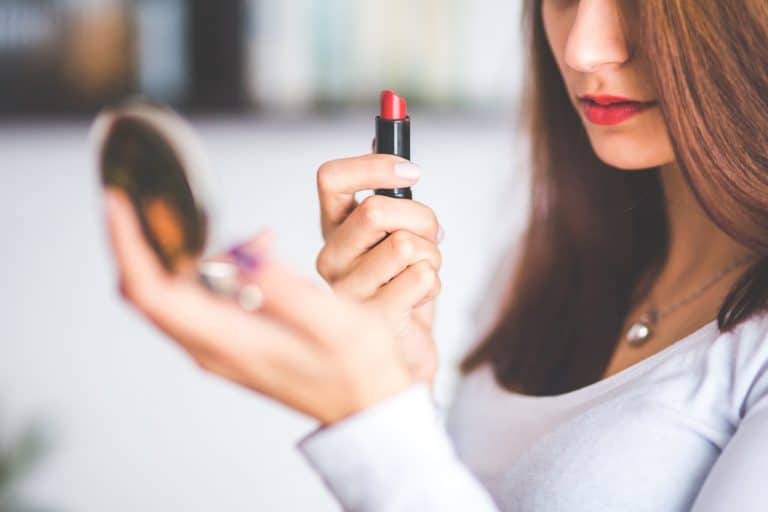At some point, all major cosmetics brands were faced with the difficult decision: enter the Chinese market or stick to their principles. This is due to China’s requirement of cosmetics to undergo animal testing. However, on May 1st 2021, China has loosened its requirement for animal testing. In short, pre-market animal testing is no longer required for a majority of products that are considered “ordinary”, so long as the brand has obtained a certification of good manufacturing practices (GMP) issued by the cosmetic regulatory authority of the country. France was the first country to have the regulatory bodies issue certificates to manufacturers.
However, this does not mean that cosmetics animal testing in China is a thing of the past. The requirement still exists for “special” products, which includes sunscreens and hair and skin dyes, and there is also a chance that a product can get pegged for “post-market” testing, which may or may not be on animals, if there is a safety concern.
This new regulation falls during a time when the Chinese cosmetics market has enormous potential, as it bounces back from a rough 2020.
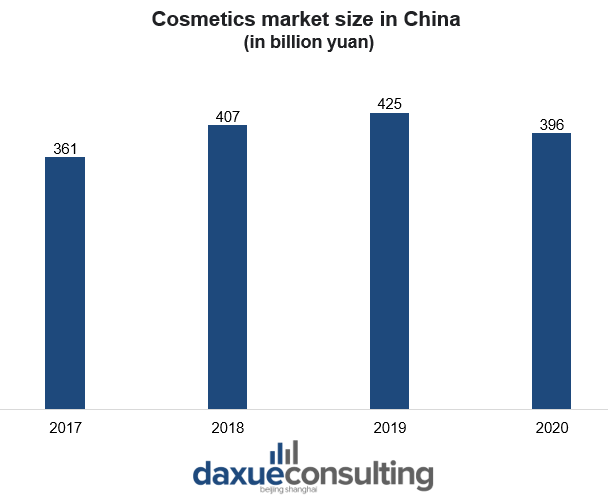
Data Source: iimedia, China cosmetics market size
Why China requires cosmetics animal testing
China was one of the few countries where animal testing is still a condition for entering the cosmetics market. There are several reasons for this. First, Chinese consumers, on average, have a high concern for product safety, and believe doing animal testing to sell cosmetics in China is safer than alternative methods and ensures their safety. Secondly, activism in China is low compared to the west. Therefore, there are few domestic movements pushing to change the existing realities of cosmetics testing
Previously, companies that want to sell cosmetics in China must pay to test their products, which is a source of income for laboratories where Chinese scientists work.
Timeline of cosmetics animal testing in China
The 2014 regulations suggested that general Chinese cosmetics do not require pre-market testing on animals. Also, any cosmetic product made in China but sold abroad does not require animal testing. However, all cosmetic products sold in China undergo post-market animal testing.
In 2019, the regulations stopped requiring post-market animal testing for cosmetics in China. However, post-market animal testing may be the case during non-standard tests such as a consumer complaint. China does not have an alternative for non-animal skin / eye irritation test.
2020 has been a particularly important year for animal testing for cosmetics in China. China announced that from 2021 the country will end its policy of pre-market animal testing of “general” imported cosmetics. Imported “general” cosmetics include shampoo, blush, mascara and perfume. However, so-called “special” cosmetics still require animal testing. Special cosmetics include antiperspirant, deodorant and sunscreen. In addition, post-market testing is still performed on animals during non-standard tests such as a consumer complaint.
Entering the Chinese market provoked backlash for international cosmetic brands
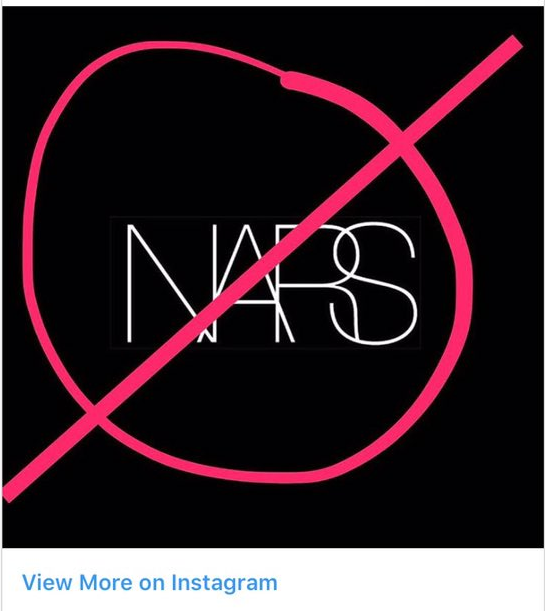
Source: Instagram, Example of #boycottnars hashtag
The main source of pressure against animal testing in China is not from domestic sources, but international consumers. Among eco-conscious international consumers, ‘entering China’ has become synonymous with ‘performs animal testing’. Hence, a cosmetics brand simply stating that they are entering the Chinese market is enough to produce backlash on social media.
There are several examples of international cosmetic brands getting criticized for entering the Chinese market. For example, in 2017 Nars got backlash after announcing that it would enter China, and was immediately hit with the #boycottnars hashtag on social media.
After a wave of criticism, Nars shared an Instagram post explaining that although the company is against animal testing, the move was necessary in order for them to start selling products in China.
MAC encountered a similar fate. The company said it was not able to simultaneously maintain a commitment to non-cruelty to animals and sell in China. The company chose to sell beauty products in the Chinese market. Because of this, MAC also faced opposition from some consumers.
However, in the foreseeable future we may see an end to brands going through the difficult decision that NARS and MAC went through.
2021’s policy shift for cosmetics animal testing in China
Why China changed the rules for animal testing
The question of whether China will soften its stance on testing has been one of the most important topics in the cosmetics industry. China’s animal testing requirements not only violates the ethical principles of many companies, but it can also cause consumers’ dissatisfaction in Western markets. Therefore, in 2020, China has embarked on a cosmetics product regulatory reform. The result was a regulation – Cosmetics Supervision and Administration Regulation (CSAR) and a series of additional regulations to improve the cosmetics regulatory system.
Pressure and criticism from international organizations
International organizations such as the Organization for the Protection of Animals and Cruelty Free International are actively working to stop cosmetics animal testing in China while supporting brands that refuse to conduct these tests.
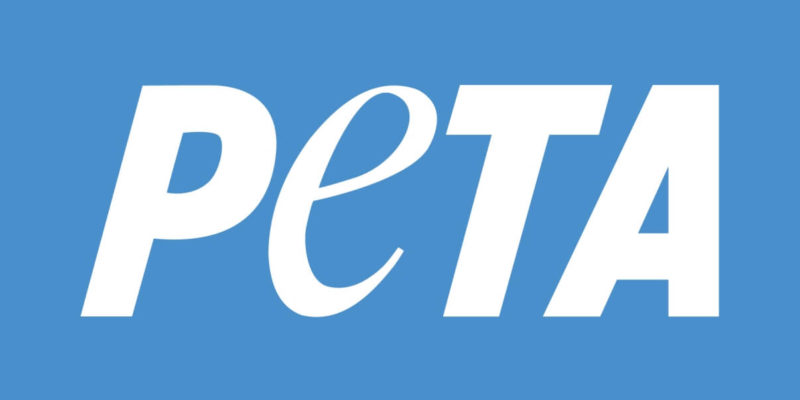
Source: PETA, PETA logo
In 2012, PETA (People for the Ethical Treatment of Animals) first discovered that cosmetics companies were paying for animal testing to sell cosmetics in China. Therefore, they began to financially support scientists studying non-animal testing methods. PETA has also worked with major international brands that sell their products in China, including Dove and Herbal Essences, to ban all animal testing.
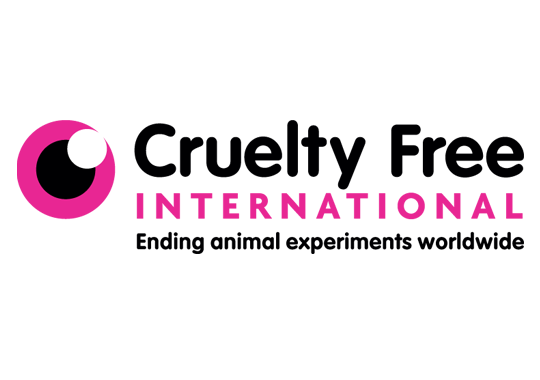
Source: Cruelty Free International, Logo
Also, in 2018, Cruelty Free International launched its Leaping Bunny China pilot program, which helps brands enter the Chinese market without the need for animal testing.
What the policy towards cosmetic animal testing in China means for brands
In order to understand what changes await foreign cosmetic brands in China, we need to analyze the new rules that came into force in 2021.
- “General” cosmetics products (which excludes hair dyes, children’s products, whitening products and sunscreen) no longer require animal testing before entering the Chinese market.
- However, these “general” products may be subject to post-market testing if they are taken off the shelves for safety reasons. Post-market testing may or may not be on animals.
- The fact remains unchanged that “general” Chinese-made cosmetics do not require animal testing.
- Special-purpose cosmetics, both imported and domestically produced, still require animal testing, whereas “General” Chinese-made cosmetics for export still do not require animal testing.
- Any cosmetics purchased in China through a foreign e-commerce site have never required animal testing.
What does this mean for foreign cosmetic brands? The new rules, which came into force on May 1st, 2021, give foreign cosmetic brands the ability to sell in China without the need for mandatory pre-testing on animals only if they sell “general” cosmetics. However, if these brands sell “special” cosmetics, the brand must pay for animal testing before they enter the Chinese market. And, if they sell “general” cosmetics, they may still be subject to animal testing after market entry.
Basically, foreign cosmetics brands are now on the same footing as domestic brands when it comes to animal testing requirements.
China’s animal testing policy change 1: Imported general purpose cosmetics are exempt from animal testing
Foreign companies can apply for an animal testing exemption for “general” cosmetics if they meet the following conditions:
- Manufacturers have received the appropriate GMP certificate issued by their country’s cosmetics regulatory authority.
- Safety assessments fully demonstrate product safety.
Again, general cosmetics includes all products, except for hair dyes, perms, freckle removers, whitening products, sunscreens, anti-hair loss products and cosmetics that claim new efficacy.
The new rules also dictate when companies need to test on animals:
Products that meet these criteria are still required to be tested on animals in China
- Cosmetics products created for children
- Cosmetics products using new ingredients
- The cosmetics manufacturer is listed as a key subject of oversight in accordance with the results of the scoring system established by the NMPA.
- The cosmetics manufacturer previously had quality or safety problems
China’s animal testing policy change 2: International alternatives for cosmetics with new ingredients
Overseas cosmetics companies that are incorporating new ingredients into their products can contact a reputable international validation agency to avoid testing cosmetics on animals in China, this includes OECD, ICCR, ICCVAM, EURL-ECVAM, JaCVAM and more.
However, companies must comply with these two requirements:
- To assess toxicity, comprehensive testing and evaluation approaches should be based on the characteristics of the new ingredient and the specific toxicological endpoint.
- Documents must confirm the consistency of the results obtained from alternatives and existing toxicological testing methods in China.
Supporting documents can be research papers and scientific papers officially published which include a detailed analysis, or test reports issued by internationally recognized laboratories. They should include a brief description of the research process of the test method, data from comparative studies of at least 10 test substances, analysis of the results, conclusions and original texts, etc.
France is the first EU country to get exemption on cosmetic animal testing in China
In early 2021, France became the first EU country to qualify for an exemption from animal testing to sell cosmetics in China. French cosmetics manufacturers have applied for the Bonnes Practiques de Fabrication certificate, confirming that the production meets the safety requirements of China. The French government regulatory body has issued certificates of good manufacturing practice. Each certificate request costs 1,400 euros and is reviewed with the dossier and with all relevant documents. The certification exempts companies from cosmetic animal testing in China.
The future of cosmetic animal testing in China
Does this mean that foreign brands can no longer worry about animal testing for cosmetics in China? For now, unfortunately the answer is ‘definitely not’. They still won’t be 100% cruelty free even with the new regulations. Of course, brands selling “general” cosmetics can avoid pre-sale animal testing. However, there is still a high risk of aftermarket testing of cosmetics on animals in China.
Nevertheless, we can conclude that removing the requirement for at least “general” cosmetics is a step in the right direction.
What foreign brands will be relevant in terms of the new China animal testing policy?
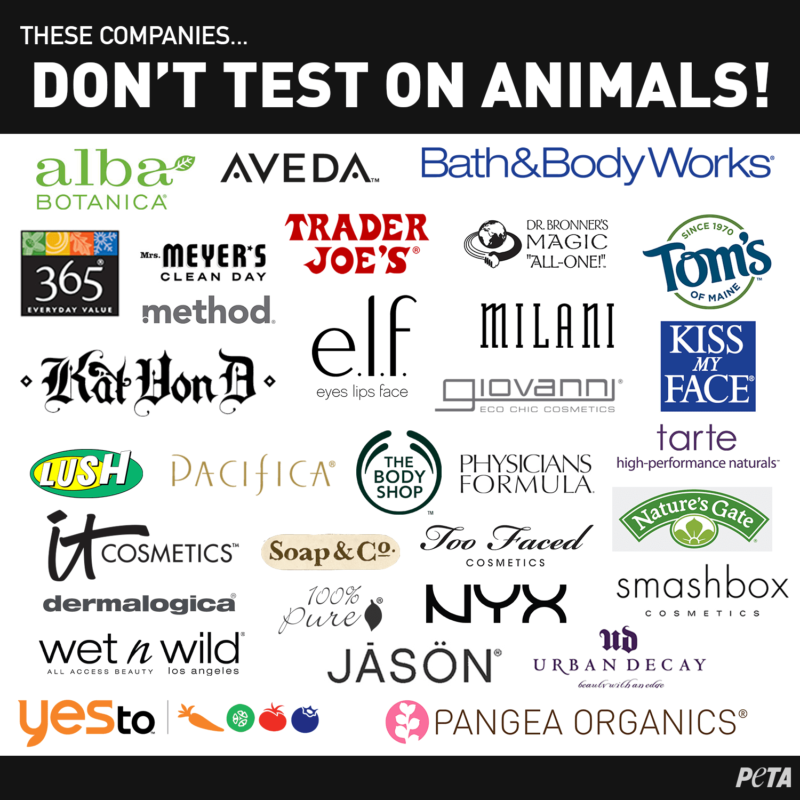
Source: PETA, Cruelty-free brands
Many foreign cosmetics brands refused to enter the Chinese market due to animal testing. However, things may change after new regulations, which give many foreign vegan and cruelty-free brands a chance to discover the opportunities in the Chinese cosmetics market. For example, cruelty-free cosmetic brands such as Ceramiracle, 100% Pure and Urban Decay, which sold in China only through e-commerce platforms, can now fully enter the Chinese market.
The French cosmetic brand Urban Decay is an interesting case. In 2012, Urban Decay wanted to enter the Chinese market, but after discussions with PETA, the company withdrew its desire due to the mandatory cosmetics animal testing in China. Now, following the new regulations, Urban Decay can sell cosmetics in China while adhering to its ethical principles. This is also true for such large foreign brands as Canadian The Ordinary, American NYX and Marc Jacobs, and German Essence makeup. They all claim on their official websites that they do not sell cosmetics in China as they are against animal testing of cosmetics.
Impact on the competition with domestic brands
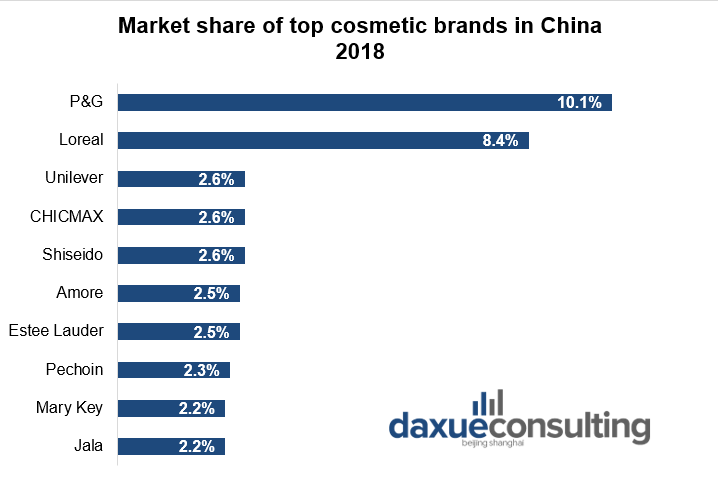
Data Source: The Economist, Market share of top cosmetic brands in China
Historically, foreign cosmetic brands in China have had a large market share. For example, in 2018 top three cosmetic brands in China were foreign. In addition, more and more young Chinese consumers are focusing on vegan cosmetic brands that deny animal testing. This is one of the reasons domestic Chinese cosmetics brands were gaining an advantage, as the government did not require local companies producing “general” cosmetics to conduct animal tests.
However, these new regulations open the doors for overseas vegan cosmetics brands to enter the Chinese market and compete with domestic companies. Therefore, cosmetics companies that are already in China and those planning to enter the country should think about marketing strategies to promote sales.
Contact us at dx@daxueconsulting.com to optimize your marketing strategy for selling cosmetics in China
Learn something new? Stay updated on the Chinese market by following our WeChat, scan the QR code below, or subscribe to our newsletter
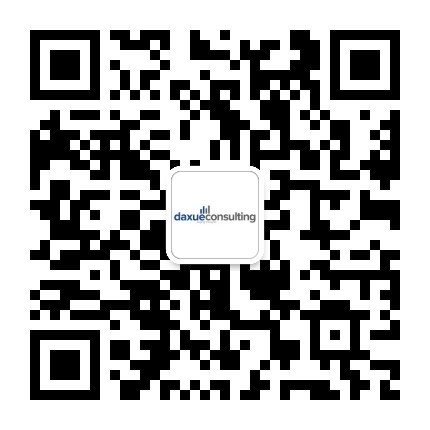
See our report on China’s male beauty market
Listen to over 100 China entrepreneur stories on China Paradigms, the China business podcast
Listen to China Paradigm on Apple Podcast
